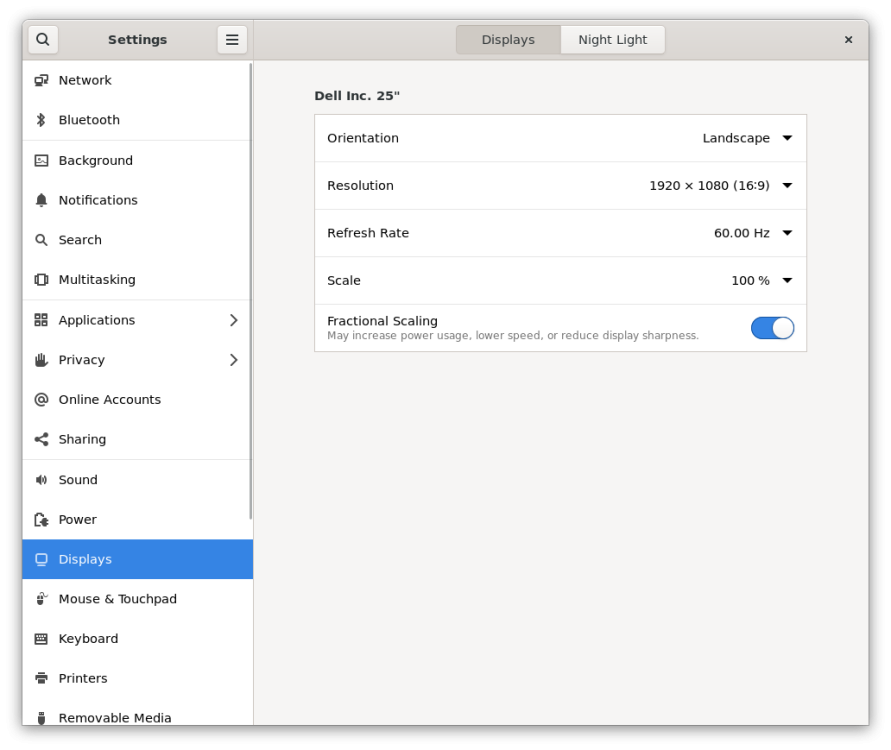All Activity
- Past hour
-
Hi, I am having the same issue and I'm in the same scenario as yourself. I also have 2 OPi 5+ one with 16GB RAM and the other 32GB RAM. The 32GB version crashes as soon as the NVMe usage becomes intense. I have tested with different NVMe drives (both are 2TB size so... Not sure if it isn't some limitation on that side) and if I connect it through USB it works without a glitch. I'm starting to suspect something's badly soldered or installed physically. Did you manage to solve your issue?
-
Hi, we speak same problem to link below. Read last 2-3 pages . Keep in touch
- Today
-
@ag123 I have been doing a lot of tests using official Orange Pi Zero 3 SDK following instructions here, and I think a got a way to detect the right memory size. I was not able to fix random memory size detection yet, so it would be next. Anyway, what I saw is that current memory size detection is based on top address wap around to base address. It works well for 1GB, 2GB and 4GB, but not for 1.5GB, as it is not even tried by this method. So I tried to write something to 1.5GB memory address and looking around memory to find a match, and I did not find anything. Instead what I got is that address maps to nowhere, because writing something and then reading once an again, what I got was a kind of random values. And based on that I coded a memory size fix. First of all I need a funcion to check top memory: bool mctl_mem_matches_top(ulong offset) { static const unsigned value= 0xaa55aa55; /* Take last usable memory address */ offset -= sizeof(unsigned); dsb(); /* Set zero at last usable memory address */ writel(0, (ulong)CONFIG_SYS_SDRAM_BASE + offset); dsb(); /* Set other value at last usable memory address */ writel(value, (ulong)CONFIG_SYS_SDRAM_BASE + offset); dsb(); /* Check if the same value is actually observed when reading back */ return readl((ulong)CONFIG_SYS_SDRAM_BASE + offset) == value; } And then just use it to fix memory size: static unsigned long mctl_calc_size(struct dram_para *para) { u8 width = para->bus_full_width ? 4 : 2; unsigned long size; /* 8 banks */ size = (1ULL << (para->cols + para->rows + 3)) * width * para->ranks; /* Fix size if last usable memory address is not valid */ if (!mctl_mem_matches_top(size)) size = (size * 3) / 4; return size; }
-
Description Various minor fixes to rockchip rk3318/rk322x based tv boxes: usb ports gain resets in uboot and kernel, so hopefully they gains some more compatibility and/or less hangups rk3318-box now uses the ddrbin from vendor; it was accidentally switched to uboot TPL during last uboot update some patches have been removed because useless or because things could merged into board dtbs Except for a change in dwc2.c driver in rockchip 32 bit (that may have an effect on OTG port on ASUS Tinkerboard, which is usually unused due to being the power connector), no other boards are affected by these changes. It looks like that USB resets,at least on rk3318/rk3328, are good for USB gadgets and makes the audio gadget work in both UAC1 and UAC2 modes. During previous tests, without these patches, audio gadget were totally refusing to work. How Has This Been Tested? USB device have been tested on all USB OTG/EHCI or hubbed ports on these systems: [x] Tested current 6.6 kernel on rk322x live system, complied edge 6.8 kernel [x] Tested current 6.6 kernel on rk3318 live system [x] Tested current 6.6 and edge 6.8 kernels on rk3328 live system Checklist: [x] My code follows the style guidelines of this project [x] I have performed a self-review of my own code [x] I have commented my code, particularly in hard-to-understand areas [x] My changes generate no new warnings View the full article
-
hi @TRay I'd like to suggest playing with libgpiod to get familiar with gpiod based gpio access https://git.kernel.org/pub/scm/libs/libgpiod/libgpiod.git https://git.kernel.org/pub/scm/libs/libgpiod/libgpiod.git/tree/ The readme is quite instructive https://git.kernel.org/pub/scm/libs/libgpiod/libgpiod.git/tree/README unfortunately, I've not tried out gpiod itself and wouldn't be able to say much more about it. Other than to say that I found the kernel repo for gpiod / libgpiod and think it is possibly a good way to do some gpio A good thing is libgpiod has bindings like c++ and python / rust https://git.kernel.org/pub/scm/libs/libgpiod/libgpiod.git/tree/bindings https://git.kernel.org/pub/scm/libs/libgpiod/libgpiod.git/tree/bindings/python/examples which means that starting to play with them can start with python etc. e.g. to try to blink a led connected on the header. That (blinking a led) is normally the 'hello world' for embedded / bare metal programming. I'm not sure if more elaborate stuff like spi / i2c is achieved through the same means, those (SPI / I2C) would likely need messing with DTS and even deep down into the drivers and even lower to bare metal to interface with H618 *hardware* registers (for SPI / I2C etc) , it can be a pretty high bar to jump depending on how much information is available and can be found, e.g. is the SPI / I2C hardware after all publicly documented?
-
I am using orange pi pc plus after using armbian system, there is an infinite network with WLAN0 and WLAN1, but at present there is no law to use both networks at the same time and connect different SSIDs. Error: Connection activation failed: (7) Secrets were required, but not provided. pi@orangepipcplus:~$ cat /etc/os-release PRETTY_NAME="Armbian 24.5.0-trunk.512 jammy" NAME="Ubuntu" VERSION_ID="22.04" VERSION="22.04.4 LTS (Jammy Jellyfish)" VERSION_CODENAME=jammy ID=ubuntu ID_LIKE=debian HOME_URL="https://www.armbian.com" SUPPORT_URL="https://forum.armbian.com" BUG_REPORT_URL="https://www.armbian.com/bugs" PRIVACY_POLICY_URL="https://www.armbian.com" UBUNTU_CODENAME=jammy ARMBIAN_PRETTY_NAME="Armbian 24.5.0-trunk.512 jammy" pi@orangepipcplus:~$ uname -a Linux orangepipcplus 6.6.29-current-sunxi #1 SMP Sat Apr 27 15:11:44 UTC 2024 armv7l armv7l armv7l GNU/Linux pi@orangepipcplus:~$ ip a 1: lo: <LOOPBACK,UP,LOWER_UP> mtu 65536 qdisc noqueue state UNKNOWN group default qlen 1000 link/loopback 00:00:00:00:00:00 brd 00:00:00:00:00:00 inet 127.0.0.1/8 scope host lo valid_lft forever preferred_lft forever inet6 ::1/128 scope host valid_lft forever preferred_lft forever 2: eth0: <BROADCAST,MULTICAST,UP,LOWER_UP> mtu 1500 qdisc mq state UP group default qlen 1000 link/ether xx:xx:xx:xx:xx:xx brd ff:ff:ff:ff:ff:ff inet 192.168.1.101/24 brd 192.168.1.255 scope global dynamic noprefixroute eth0 valid_lft 4555sec preferred_lft 4555sec inet6 fe80::9f55:6e99:c16e:8c7/64 scope link noprefixroute valid_lft forever preferred_lft forever 3: wlan0: <BROADCAST,MULTICAST,UP,LOWER_UP> mtu 1500 qdisc mq state UP group default qlen 1000 link/ether xx:xx:xx:xx:xx:xx brd ff:ff:ff:ff:ff:ff inet 192.168.0.214/24 brd 192.168.0.255 scope global dynamic noprefixroute wlan0 valid_lft 604097sec preferred_lft 604097sec inet6 fe80::faea:304c:b4b2:2c53/64 scope link noprefixroute valid_lft forever preferred_lft forever 4: wlan1: <NO-CARRIER,BROADCAST,MULTICAST,UP> mtu 1500 qdisc mq state DOWN group default qlen 1000 link/ether xx:xx:xx:xx:xx:xx brd ff:ff:ff:ff:ff:ff pi@orangepipcplus:~$ nmcli device wifi connect <ssid> password <pwd> ifname wlan1 Error: Connection activation failed: (7) Secrets were required, but not provided.
-
I have question. OZPI v3 has support for hardware DS18B20 thermal sensor via w1-gpio ? In armbian-config when we got to the “system” section and select “Hardware” is not existing w1-gpio or OZPI v3 has not support for w1-gpio hardware ? Does not work because there is no device tree file (in the /boot/dtb/allwinner/) and we need to create it ??? like for OZPI v2 ?: 1. Create text file "sun50i-h616-w1-gpio.dts" /dts-v1/; / { compatible = "xunlong,orangepi-zero2\0allwinner,sun50i-h616"; fragment@0 { target = <0xffffffff>; __overlay__ { w1_pins { pins = "PC9"; function = "gpio_in"; phandle = <0x01>; }; }; }; fragment@1 { target-path = [2f 00]; __overlay__ { onewire@0 { compatible = "w1-gpio"; pinctrl-names = "default"; pinctrl-0 = <0x01>; gpios = <0xffffffff 0x02 0x06 0x00>; status = "okay"; }; }; }; __symbols__ { w1_pins = "/fragment@0/__overlay__/w1_pins"; }; __fixups__ { pio = "/fragment@0:target:0\0/fragment@1/__overlay__/onewire@0:gpios:0"; }; __local_fixups__ { fragment@1 { __overlay__ { onewire@0 { pinctrl-0 = <0x00>; }; }; }; }; }; 2. After you need to compile it, with command "dtc -O dtb -o sun50i-h616-w1-gpio.dtbo sun50i-h616-w1-gpio.dts" 3. Copy it too /boot/dtb/allwinner/overlay/
-
Description Cut and sewing work around mailing list/libreelec patches to include a minimum set of patches that attempt to solve the various issues with HDMI on rockchip64 family. This affects both current kernel 6.6 and edge kernel 6.8. References on the forums: https://forum.armbian.com/topic/26818-opi-4-lts-no-hdmi-output/ https://forum.armbian.com/topic/37166-hdmi-issues-on-6x-kernel/ One kind guy tested the kernel package on rockpro64 and reported success: https://forum.armbian.com/topic/26818-opi-4-lts-no-hdmi-output/?do=findComment&comment=189646 Also remove a patch named "rk356x-vop2-support", that was not about vop2 support but rather tweaks the HDMI phy timings and code because it has been already included in this more general clock fixes. Jira reference number AR-2118 How Has This Been Tested? [x] Tested on a live Orange PI 4 LTS system [x] Tested on a rk3328 tv box [x] Tested on rockpro64 by the guy in the description Checklist: [x] My code follows the style guidelines of this project [x] I have performed a self-review of my own code [x] I have commented my code, particularly in hard-to-understand areas [x] My changes generate no new warnings View the full article
-
I have a Helios64 that I recently reinstalled/updated to the latest Armbain Jammy image after not updating for quite some time and finding some of the repos to be dead. Without the drives initialized the system seems like it will run for days, but with the drives initialized (ZFS), I will get the below error after a few hours of uptime (~8-10 hours). I have seen some threads saying to set the CPU clock to one speed to fix the issue and some people installing a newer kernel (via beta.armbian.com). If anyone has any thoughts on how I could try and make this more stable I would appreciate it. [477435.475903] rcu: INFO: rcu_preempt self-detected stall on CPU [477435.476481] rcu: 3-....: (90606038 ticks this GP) idle=8c74/1/0x4000000000000000 softirq=715905/93001225 fqs=43038032 [477435.477488] rcu: (t=90606039 jiffies g=2287601 q=1361150 ncpus=6) [477549.183778] rcu: INFO: rcu_preempt detected expedited stalls on CPUs/tasks: { 1-.... 3-.... } 65978929 jiffies s: 781 root: 0xa/. [477549.184885] rcu: blocking rcu_node structures (internal RCU debug): [477615.481330] rcu: INFO: rcu_preempt self-detected stall on CPU [477615.481904] rcu: 3-....: (90651041 ticks this GP) idle=8c74/1/0x4000000000000000 softirq=715905/93047138 fqs=43059171 [477615.482913] rcu: (t=90651042 jiffies g=2287601 q=1361150 ncpus=6) [477729.401197] rcu: INFO: rcu_preempt detected expedited stalls on CPUs/tasks: { 1-.... 3-.... } 66023985 jiffies s: 781 root: 0xa/. [477729.402304] rcu: blocking rcu_node structures (internal RCU debug): [477795.486758] rcu: INFO: rcu_preempt self-detected stall on CPU [477795.487338] rcu: 3-....: (90696044 ticks this GP) idle=8c74/1/0x4000000000000000 softirq=715905/93092997 fqs=43080230 [477795.488344] rcu: (t=90696045 jiffies g=2287601 q=1361150 ncpus=6) [477909.618629] rcu: INFO: rcu_preempt detected expedited stalls on CPUs/tasks: { 1-.... 3-.... } 66069041 jiffies s: 781 root: 0xa/. [477909.619735] rcu: blocking rcu_node structures (internal RCU debug): [477975.492185] rcu: INFO: rcu_preempt self-detected stall on CPU [477975.492764] rcu: 3-....: (90741047 ticks this GP) idle=8c74/1/0x4000000000000000 softirq=715905/93138939 fqs=43101769 [477975.493771] rcu: (t=90741048 jiffies g=2287601 q=1361150 ncpus=6) [478089.836039] rcu: INFO: rcu_preempt detected expedited stalls on CPUs/tasks: { 1-.... 3-.... } 66114097 jiffies s: 781 root: 0xa/. [478089.837147] rcu: blocking rcu_node structures (internal RCU debug):
-
check this post: There is a patch by jock which works well.
-
Thanks!! The patch works perfectly! I have the similar but not exactly issue (no options above 1080p) on RockPro64 here: After applying the patch, immediately the system picks 2K automatically after robot. By the way, am I supposed to do so since I just realized the patch is made for OPi 4 LTS.
-
It seems that the HDMI output does not have any option beyond 1080P. Tried multiple monitors. The font size at uboot stage seems right but the resolution maxed out at 1080P after kernel starts. Tried Armbian 24.2.1 with 6.6.16. Could be related with this: https://forum.manjaro.org/t/rk3399-hdmi-output-for-resolutions-different-than-1080p/90644. but patches should be applied at Kernel 6.4: https://www.phoronix.com/news/Linux-6.4-imx25-Rockchip-4K Attached is the screenshot when connected with DELL 25inch monitor. Should have 2K option. diagnoses: https://paste.armbian.com/gaketoluye Thank you
-
Hello! Whilst I, so far, only used a BPi M5 as a multirole-server (Mumble, Apache, Minecraft), I'd use a 16GB BPi M7 as an OpenSimulator node. And, depending upon the availability under Armbian of an LLM able to use the NPU, I'd use that to have a locally hosted Chat-Help-Bot in that OpenSimulator node. Admittedly, I have no clue of how to do that - but there's other LLM's that might have the knowledge to guide me through that process. Or some human able and willing to help. The aim would be to have a selfcontained OpenSimulator Sim able to serve as both a login point to the Hypergrid/Metaverse as well as having an integrated, interactive helpcenter for newbies. And, too, to have a general point of contact that's staffed 24/7. Well, and I'd use the fact I don't see any cases so far for the M7 to design one that's FDM printable. With kind regards Rüdiger
-
If I win, I'll use BananaPi M7 to play old Viper Racing pc-game and other old pc-games, on top of Armbian I have RockPi 4B x 2 and NanoPi Neo Air x 6 + Raspberry 3B but those are already in use for other things, like collecting RuuviTag-data, running InfluxDB and MariaDB + Grafana for the visualisation.
-

Vontar KK MAX / HK1 RBOX R2 / R3 - RK3566 4GB/32GB(or 64GB)
Energokom replied to Deoptim's topic in Rockchip CPU Boxes
Hi. Can you buid a loader c with rk3566_ddr_1056MHz_v1.21.bin https://github.com/rockchip-linux/rkbin/blob/master/bin/rk35/rk3566_ddr_1056MHz_v1.21.bin or tell me how to do it. Thanks! -

Efforts to develop firmware for Vontar KK Max 8gb/128gb"
Energokom replied to gersones's topic in Rockchip CPU Boxes
I can take it from android. But I asked how to build it myself -
@perfstr follow me to the world of silvertape and WD40: Start here read, and learn every step.... so you can go there
-
Hello, https://doc.embedfire.com/products/link/en/latest/linux/ebf_lubancat.html I tried to port the kernel device tree in the SDK provided to the mainline kernel, but it ultimately failed to start I'm not sure what the difference is between the device tree in the mainline kernel and the rk custom kernel Please help me.
-
I have a patch for emmc internal memory but I haven't tested it yet. I got it from warpme's miniarch distro. If you go back a few pages you'll see how heiko910 installed to emmc.
-
It's possible to get your H616 running with armbian.. we need more info. First you need to install a serial console on your uart. So we can see where the boot process stops. You probably have a different Dram setup. We can figure that out easily by extracting the boot0 from your android. The H616 is almost the same as H618. I have a H618 and everything works but the headphone jack. Banana Pi zero 3 has H618 with headphone jack working. I just don't have time right now to figure out the headphone issue. Please read this thread you'll find a lot of useful information getting your box up and running.
- Yesterday
-
Aside from the obvious - adding it to my homelab - I'd do the following: Write a review for my website on the board - in particular I'd be interested to see how it stacks up against my Rock 5B board. Look into ways this board could be used as a network firewall given that it has dual network ports. Configure the services running on my Rock 5B to have some amount of high availability with this board.
-

Armbian noob cannot download etcher or USBimager, is dd OK?
offgridNerd replied to offgridNerd's topic in Beginners
ag123: I was able to get github.com/armbian/os/releases to load, ONCE... then never again. (Apparently github hates these shared PCs or something.) Torrents are probably a no-go... I don't think these shared library machines have a client, and they won't run any code I sneakernet in. going: I have a hardware RTC for the Pi (DS3231-based). I'll dd the Jammy CLI download I snagged earlier to a clean uSD and boot a Pi4B up to see what happens. IIRC it's easy to reconfigure the time service to function without NTP. Thanks to everybody for the feedback. -

Headers package version mismatch 24.2.5 vs 24.2.1
Michal Fita replied to Michal Fita's topic in Raspberry Pi
sudo apt install linux-image-current-bcm2712=24.2.1 Would suffice for now. -

Headers package version mismatch 24.2.5 vs 24.2.1
Michal Fita replied to Michal Fita's topic in Raspberry Pi
Agree. My company can only cover costs for agreed Statement of Work and the price has to be agreed upfront. We can push limited number of hours invoiced for something important, but unfortunately we can't do donations - startups looks every penny both sides twice. Looks like images released aren't compatible with state of APT repositories: ~# apt show -a linux-image-current-bcm2712 Package: linux-image-current-bcm2712 Version: 24.2.5 Status: install ok installed Priority: optional Section: kernel Source: linux-6.6.23 Maintainer: Armbian Linux <info@armbian.com> Installed-Size: 155 MB Provides: linux-image, linux-image-armbian, armbian-current Armbian-Kernel-Version: 6.6.23 Armbian-Kernel-Version-Family: 6.6.23-current-bcm2712 Armbian-Original-Hash: 6.6.23-S8c3e-Dfed2-P0000-Ccc02H66b1-HK01ba-Vc222-Bd104-R448a Download-Size: unknown APT-Manual-Installed: yes APT-Sources: /var/lib/dpkg/status Description: Armbian Linux current kernel image 6.6.23-current-bcm2712 This package contains the Linux kernel, modules and corresponding other files. version "6.6.23" git revision "8c3e7a55220cb7cb13131bb8dccd37694537eb97" codename "Hurr durr Ima ninja sloth" drivers hash "fed24384_9f81b93f" patches hash "0000000000000000" .config hash "cc027d3a59f16119" .config hook hash "66b17b0d7f47b551" variables hash "c22207b66dc5dd57157df2cd7b9c20559b2ed8ac44b9c3c3b9704002c06b8921" framework bash hash "d1042705e60277e8" Package: linux-image-current-bcm2712 Version: 24.2.1 Priority: optional Section: kernel Source: linux-6.6.18 Maintainer: Armbian Linux <info@armbian.com> Installed-Size: 158 MB Provides: linux-image, linux-image-armbian, armbian-current Armbian-Kernel-Version: 6.6.18 Armbian-Kernel-Version-Family: 6.6.18-current-bcm2712 Armbian-Original-Hash: 6.6.18-S9e78-D6b4a-P0000-Cb2aaH4168-HK01ba-Vc222-B067e-R448a Download-Size: 27.4 MB APT-Sources: http://apt.armbian.com jammy/main arm64 Packages Description: Armbian Linux current kernel image 6.6.18-current-bcm2712 This package contains the Linux kernel, modules and corresponding other files. version "6.6.18" git revision "9e78addad23f9fc66b0c6399d9234e44a89d699a" codename "Hurr durr Ima ninja sloth" drivers hash "6b4abbc6_0b3d8cbf" patches hash "0000000000000000" .config hash "b2aa59cc79694025" .config hook hash "4168b2934f796ee8" variables hash "c22207b66dc5dd57157df2cd7b9c20559b2ed8ac44b9c3c3b9704002c06b8921" framework bash hash "067e1a10c790605d" `APT-Sources` field indicates only the latter is available on apt.armbian.com... I found https://armbian.site-meganet.com/apt/pool/main/l/linux-6.6.18/ only, no directory for 6.6.23 in there.






